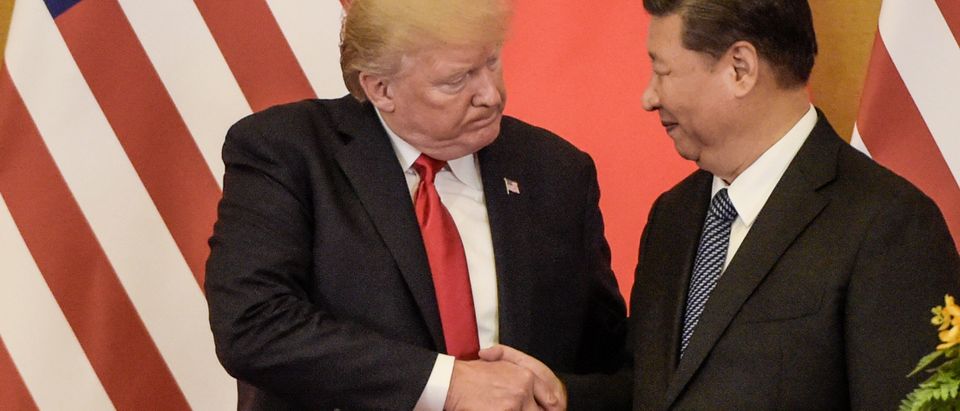The eyes of Wall Street, if not the world, were on President Donald J. Trump and Chinese President-for-life Xi Jinping when they met to discuss trade relations.
Trump made it clear that any deal must stop China’s theft of intellectual property, forced technology transfer, subsidies, dumping, state-owned enterprises that don’t follow free market rules, and hacking of our government and private sector computer networks.
As a precondition for resuming talks, China had demanded all existing tariffs to be lifted and that Huawei, the cyberespionage arm of the Chinese People’s Liberation Army disguised as a telecom company, be removed from the U.S. government blacklist.
Trump did neither.
Trump’s tariffs that are in place, including the 25 percent tariffs announced in May, remain in place.
Huawei remains on the blacklist. As before, American businesses will only be allowed to sell Huawei products and services that do not threaten national security. The Pentagon will review any export licenses.
Nonetheless, China agreed to resume negotiations.
The president set no deadline on the negotiations, and these open-ended talks give Western businesses more time to move their supply chains away from China, if they already haven’t.
And it’s well past time they did so.
The existing 25 percent tariffs remain in place indefinitely. Additional tariffs on another $300 billion of goods are still on the table. They’ve merely been postponed for an unknown period of time and could go into effect at any time if China does not negotiate in good faith.
With no deadline set by either side, no one can assume there will be a deal in, say, 90 days or 120 days.
Wall Street analysts say business likes certainty (who doesn’t?). One certainty is that tariffs are here to stay.
Another is that investors should be asking corporate management if their supply chains are diversified, or concentrated in China.
No responsible leader would allow their company to be dependent on a sole supplier, especially one that does not respect rule of law, private property or the company’s intellectual property.
Japanese corporations diversified their supply chains from China in 2012 following a confrontation over disputed islands in the East China Sea that instigated a crackdown by Beijing on Japanese companies operating in mainland China.
There is no need to concentrate supply chains in China. Five of the top 10 products Chinese exports to the U.S. are also made in Mexico.
Rearranging supply chains and decoupling from a country is neither impossible nor unprecedented.
Corporations decoupled from the United States twenty years ago and decoupled millions of Americans from their jobs.
Corporate apologists say if we don’t do business with China consumers will pay higher prices. They know the price of everything and the value of nothing.
The current dispute is about more than trade, more than the price of consumer goods. It’s about the principles this country was founded on – freedom of religion, freedom of thought, individual rights and the right to own property.
Secretary of State Mike Pompeo said we must speak honestly about the nature of the Chinese government. It’s an authoritarian regime that has imprisoned more than one million Chinese Muslims in camps in Xinjiang. It has pioneered a digital credit system in which users trade freedom and privacy for government benefits. It’s the future China wants for the world.
In plain sight, China steals intellectual property for military and commercial purposes. It wants to dominate Artificial Intelligence, space technology, ballistic missiles, and many other areas. China’s growing capacity is matched by its appetite for expansion.
A senior State Department official told one publication, “We fundamentally erred by underestimating and misunderstanding China’s true intention, which is to create a Chinese Communist Party-dominated world order to replace the world order created by the U.S. and its allies.”
Business leaders need to get their house in order and diversify their supply chains, away from communist China and back to the United States.
The Trump administration’s program of tax reform, trade reform, regulatory reform and energy reform makes America the best place on earth to live, work, invest, do business and raise a family.
The reindustrialization of America is the key to solving a host of problems, from burdensome debt loads on college graduates to excessive income inequality and immigration.
We must reassert our independence from a foreign power that seeks to subjugate us by monopolizing trade in manufactured goods.
We did it 243 years ago and we will do it again.
Happy Independence Day!
Curtis Ellis is policy director with America First Policies. He was a senior policy adviser for the Donald J. Trump campaign.
The views and opinions expressed in this commentary are those of the author and do not reflect the official position of The Daily Caller.


